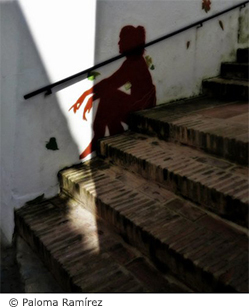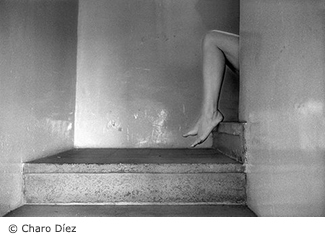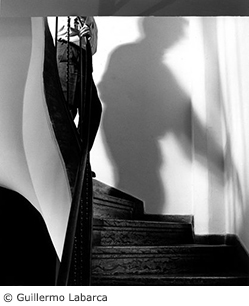1:1 Photo Magazine: What do we want?
© Guillermo Labarca

 Nowadays it is difficult to write about photography or art while bombs are falling on children and other innocents in Palestine, while so many are dying in Ukraine, Libya and Syria, while the environment is visibly deteriorating, while so many euphemisms are covering up the truth, and beauty is just a means for speculation. Additionally, so many other things are damaging the living conditions of the larger part of the population, due to the current restructuration of capitalism. In this context, it is difficult to make art "for the love of art"”, because he or she who dares to do so, is called naïve, ignorant, mediocre or simply stupid. To look for truth in politics, personal relationships, work, artistic activity, in their interpretation or evaluation has become a quixotic act that not even students dare perform.
Nowadays it is difficult to write about photography or art while bombs are falling on children and other innocents in Palestine, while so many are dying in Ukraine, Libya and Syria, while the environment is visibly deteriorating, while so many euphemisms are covering up the truth, and beauty is just a means for speculation. Additionally, so many other things are damaging the living conditions of the larger part of the population, due to the current restructuration of capitalism. In this context, it is difficult to make art "for the love of art"”, because he or she who dares to do so, is called naïve, ignorant, mediocre or simply stupid. To look for truth in politics, personal relationships, work, artistic activity, in their interpretation or evaluation has become a quixotic act that not even students dare perform.
Why are we making this magazine when we are surrounded by so many horrors that we can´t simply ignore? How is this magazine related to the children who are dying in Palestine, or to so many innocent victims of the rebirth of nationalist or religious fanaticisms, incomprehensibly intolerant because they subordinate human lives to an idea?

 At the same time, we ask ourselves: why are there so many authors, and such good ones, who publish their works in this magazine? I know why we publish it, but I don´t know what authors think when they send us their work. But in the end, our and their motivations are of little importance, what matters is that very good photographers are showing their work without expecting any retribution, or that we concern ourselves with publishing them without looking to obtain any other gain than a large quantity of readers. Modestly, we want to contribute to balance the scales where the heaviest weight is occupied by those who don´t read poetry, don´t look at images that raise yearnings of redemption, don´t admire a work well done; that is to say, those who are shaping the world at the moment: financiers, politicians, journalists, sociologists, economists.
At the same time, we ask ourselves: why are there so many authors, and such good ones, who publish their works in this magazine? I know why we publish it, but I don´t know what authors think when they send us their work. But in the end, our and their motivations are of little importance, what matters is that very good photographers are showing their work without expecting any retribution, or that we concern ourselves with publishing them without looking to obtain any other gain than a large quantity of readers. Modestly, we want to contribute to balance the scales where the heaviest weight is occupied by those who don´t read poetry, don´t look at images that raise yearnings of redemption, don´t admire a work well done; that is to say, those who are shaping the world at the moment: financiers, politicians, journalists, sociologists, economists.

 We know that photography, like all other art forms, can do little to change these events except denounce them and that these denunciations are not more than flashes that disappear quickly. It is our hope that the accumulation of snapshots will have an effect, but experience shows that they tend to cause boredom and that soon another topic – a more gruesome one - attains interest.
We know that photography, like all other art forms, can do little to change these events except denounce them and that these denunciations are not more than flashes that disappear quickly. It is our hope that the accumulation of snapshots will have an effect, but experience shows that they tend to cause boredom and that soon another topic – a more gruesome one - attains interest.
But photography can also go beyond, in the words of Eduardo Momeñe "photography comments on the world, gives an opinion on the world. Contemporary documentalism goes to locations when it is necessary to reflect on them, it is a pure and hard reflection about the world".
And it can go even further, in two directions: on one hand, supporting utopias, proposing a better world, telling us things can´t remain the way they are, don´t have to, things can change, are going to change. And on the other hand, as Octavio Paz said regarding poetry, "it helps us remember who we are",it reminds us that we are much more than daily news, that our ideal society isn´t a consumer society, that compassion lives inside us and can be emphasized and especially, it reminds is not to forget love and death, the two truths that define us.

